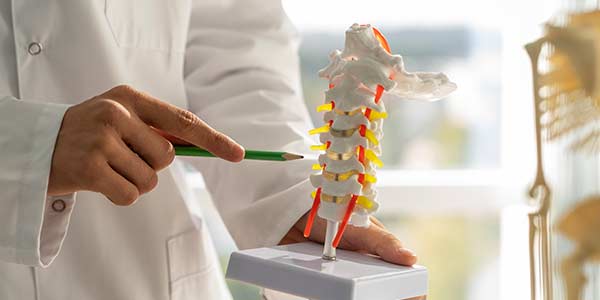Expert Spinal Degeneration Doctor in Elkton, MD: Comprehensive Care for Degenerative Spinal Conditions
Seek comprehensive care for degenerative spinal conditions from our expert spinal degeneration doctor in Elkton, MD. We specialize in diagnosing and treating degenerative spine disorders, offering personalized treatment plans. Our goal is to alleviate pain, improve functionality, and enhance spine health. Trust our expertise for effective solutions.

Are you struggling with degenerative spinal conditions that are causing pain and affecting your quality of life? At our clinic in Elkton, MD, we have a team of expert spinal degeneration doctors who specialize in providing comprehensive care for degenerative spinal conditions. With our advanced diagnostic tools and personalized treatment approaches, we are dedicated to helping you find relief and improve your spinal health.
Understanding Spinal Degeneration:
Spinal degeneration refers to the natural wear and tear that occurs in the spine over time. It can lead to a range of conditions such as degenerative disc disease, spinal stenosis, and spondylolisthesis. These conditions can cause symptoms such as back pain, neck pain, numbness, tingling, and limited mobility.
Comprehensive Care for Degenerative Spinal Conditions:
Our spinal degeneration doctors are highly experienced and knowledgeable in diagnosing and treating degenerative spinal conditions. We take a comprehensive approach to care, focusing on addressing the underlying causes of your condition rather than just managing the symptoms.
When you visit our clinic, we will begin with a thorough evaluation of your medical history and perform a detailed physical examination. We may also recommend advanced imaging tests such as X-rays or MRIs to get a clear picture of your spinal health. Based on the findings, we will develop a personalized treatment plan tailored to your specific needs.
Treatment Options:
Our treatment options for degenerative spinal conditions may include:
Medication Management: We may prescribe medications to help alleviate pain, reduce inflammation, and manage any underlying conditions contributing to spinal degeneration.
Physical Therapy: Our team of physical therapists will guide you through targeted exercises and therapies to improve spinal strength, flexibility, and stability. These exercises can help relieve pain and improve overall function.
Spinal Decompression Therapy: This non-surgical treatment involves gently stretching the spine to relieve pressure on the affected discs and nerves, promoting healing and reducing pain.
Injections: In some cases, we may recommend injections such as epidural steroid injections or facet joint injections to provide targeted pain relief and reduce inflammation.
Surgical Options: If conservative treatments are not effective, we may discuss surgical options with you. Our surgeons specialize in minimally invasive techniques to treat degenerative spinal conditions, minimizing scarring and promoting faster recovery.
Our dedicated team of spinal degeneration doctors is committed to providing you with the highest quality care and helping you regain your mobility and quality of life. Contact us today to schedule a consultation and take the first step towards a healthier spine.
Frequently Asked Questions (FAQ’s)
Spinal degeneration is primarily caused by the natural aging process, which leads to wear and tear on the spine over time. However, certain factors like genetics, lifestyle choices (such as smoking and poor nutrition), and previous injuries can also contribute to the development of degenerative spinal conditions.
If you experience symptoms such as chronic back pain, neck pain, stiffness, limited mobility, numbness, or tingling in the arms or legs, it is important to consult with a spinal degeneration doctor. They can conduct a thorough evaluation, including a physical examination and imaging tests, to diagnose your condition.
Spinal degeneration cannot be reversed completely, as it is a natural part of the aging process. However, with appropriate treatment and lifestyle modifications, it is possible to slow down the progression of degeneration, manage symptoms effectively, and improve your quality of life.
Yes, there are several non-surgical treatment options available for degenerative spinal conditions. These may include medication management to alleviate pain and inflammation, physical therapy to strengthen the muscles supporting the spine, spinal decompression therapy to relieve pressure on the affected discs and nerves, and injections to provide targeted pain relief and reduce inflammation.
Surgery for degenerative spinal conditions is typically considered when conservative treatments have been unsuccessful in relieving symptoms or when there is a risk of nerve damage or spinal instability. Your spinal degeneration doctor will thoroughly evaluate your condition and discuss surgical options with you if they are deemed necessary.
Minimally invasive surgery offers several advantages, including smaller incisions, reduced blood loss, shorter hospital stays, faster recovery times, and less post-operative pain compared to traditional open surgery. It can effectively address specific spinal conditions while minimizing disruption to surrounding tissues.
Recovery times can vary depending on the type and extent of the surgery performed, as well as individual factors. Your spinal degeneration doctor will provide you with specific post-operative instructions and guidance for rehabilitation. It is important to follow these instructions carefully to promote healing and achieve the best possible outcome.
